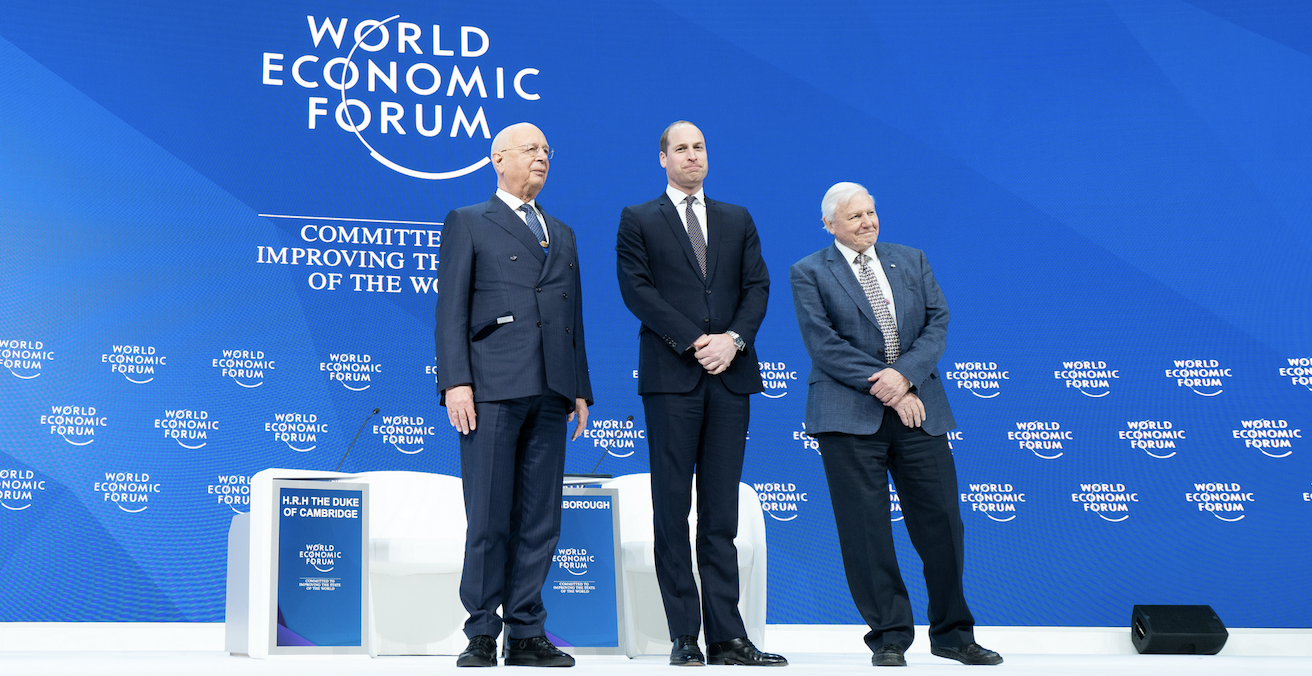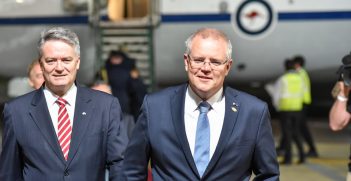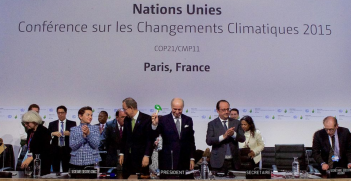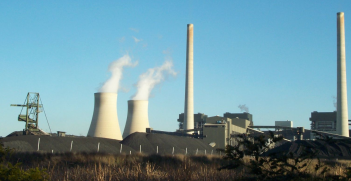Six Things We Learned From Davos

From Prince William and Sir David Attenborough’s chat on habitat loss to a pep talk from Alibaba’s Jack Ma, AIIA Fellow Colin Chapman outlines some of the highlights from the 2019 World Economic Forum.
Once again, the four-day annual meeting of the World Economic Forum gained limp and minimal coverage in the Australian media. The lack of interest may be because this significant agenda-setting gathering of many of the world’s leading decision makers, business leaders, trade union chiefs, prominent scientists, academics, educators, and others engaged in international affairs takes place in the peak Australian holiday season.
Another reason is that amongst its peers in the G-20, the OECD and the United Nations, Australia had one of the weakest delegations to Davos. It is odd when you consider there is no better opportunity to network with counterparts from across Asia, as well as the rest of the world. Some Australian media openly sneer at the WEF’s “aim to improve the state of the world,” as if 3,000 delegates have no right to have such a laudable ambition.
So, for the benefit of Australian Outlook readers, I have put together a short summary of just some of this year’s Davos debates that bear on all our lives. Each section contains a direct link to the Davos discussion. Just click on the link if you wish to listen to it.
1. What risks do we face?
The WEF’s 2019 Global Risk Report foresees a backdrop of worrying political and geo-economic tension. It will hinder the world’s ability to deal with a variety of challenges, ranging from “mounting evidence of environmental degradation to the increasing disruptions of the Fourth Industrial Revolution.”
In the Global Risks Perception Survey, in which nearly 1000 decision-makers from the public and private sectors, academia and civil society participated, nine out of ten respondents expect worsening economic and political confrontations between major powers this year. Over a ten-year horizon, extreme weather and climate-change policy failures are seen as the gravest threats.
Deep and growing concern about climate change, and failure to tackle it, was a persistent theme at this year’s Davos, with widespread condemnation of US President Donald Trump for pulling his country out of the Paris agreement, but praise for China’s efforts. Among the gloomier predictions was that a third of the ice in the Himalayas and the Hindu Kush will melt by mid-century, affecting river flows and the food bowls of China and India.
“Climate change is racing and we are walking,” said the Dutch prime minister, Mark Rutte, who made a powerful argument for the need for new coalitions to intensify the fight against climate change. In a discourse with the Duke of Cambridge, the man who has seen more of the natural wonders of the planet than most, broadcaster Sir David Attenborough, tried to be optimistic, though he said, memorably, “the Garden of Eden is no more.”
2. China’s economic slowdown
The Australian share market and business confidence have been dented by the downturn in China’s economic growth to six percent, and fears of a trade war between the world’s two largest economies. But Chinese officials and 50 leading business people at Davos painted a more optimistic picture, with a consensus that the feud with the United States would be resolved in the mutual interest of both countries. Vice President Wang Qishan gave an upbeat assessment of China’s economy, saying it will continue to achieve sustainable growth. There was an interesting panel discussion on China’s economic leadership.
3. Helping the disadvantaged
There was a lot of attention on the disadvantaged at Davos. A Somalian refugee who has spent 20 years in a Kenyan refugee camp spoke movingly of his sense of hopelessness. Closer to home, New Zealand Prime Minister Jacinda Ardern announced a new initiative to have an annual well-being budget “to gauge the impact of policy on the quality of people’s lives.” A revealing discussion on modern slavery showed that of the 40 million people still living as slaves in the 21st Century, one in four are children, some as young as five years old.
4. The future of work
France’s Minister of Labour Muriel Pénicaud described her re-skilling program, which includes giving employees €500 a year to choose their own training program. “Many of our citizens think they are victims of globalization and technology. When you are not in the driving seat, change is always a threat. You need to be in the driving seat, and you need to be able to choose your future.”
There seemed to be a consensus on what should be a jobs creation strategy: that when jobs are made redundant because of the digital revolution or the development of artificial intelligence people should not be fired, but retrained in new skills. Several company bosses told the forum that a divide was emerging between corporations that had adopted such a policy and those that had not. Separately, but in a connected debate, there was widespread criticism on the current state of education, with many arguing that a new approach is needed in an era where most of the jobs where today’s young children will work have not yet been created.
5. Widening gender gap
It was depressing to discover from the WEF survey that the gender gap is widening, both in business and politics.
6. Conversations with Jack Ma and Satya Nadella
These were two of the more interesting conversations that took place in Davos. Klaus Schwab, now 80, who created the Davos Forum in 1971 when he was a professor at the University of Geneva, talked about the controversial subject of privacy as a human right in a new digital world with the Microsoft boss Satya Nadella. In an interesting interchange, Nadella was strongly supportive of efforts to protect individuals’ data and critical of the way some Silicon Valley companies have spread their tentacles in this area. Interestingly, he outlined a blueprint for future data protection.
My favourite conversation, though, was the one Jack Ma – executive chairman of one of China’s most successful companies, Alibaba – had with a large group of graduates from universities across the developing world. Ma, who was a teacher before becoming an entrepreneur and founding Alibaba, told them how they should approach getting a job, the qualities needed to run a business and described how, when hiring, he always tried to find people smarter than himself. If you have time only to watch one of these Davos sessions, watch this one.
Colin Chapman is a former president of AIIA NSW and a former vice-president Asia Pacific of a global geopolitical analysis company. Earlier, as director of broadcasting at the Financial Times, he attended eight annual meetings of the World Economic Forum as a media leader and continues to follow its debates, which are available to the public at weforum.org.
This article is published under a Creative Commons License and may be republished with attribution.





